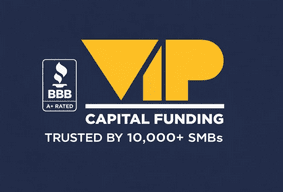Small Business Administration (SBA) loans provide vital funding to entrepreneurs and small business owners who may not qualify for traditional bank financing. While the SBA plays a crucial role in these loans, it does not directly fund them. Instead, the SBA partners with various lenders and financial institutions to guarantee a portion of the loan, reducing the risk for lenders and making it easier for businesses to secure financing. Understanding who funds SBA loans can help business owners navigate the borrowing process more effectively.
Banks and Traditional Financial Institutions
The majority of SBA loans are funded by traditional banks and financial institutions. These lenders provide the capital, while the SBA guarantees a portion of the loan to minimize the lender’s risk. Some of the most active SBA loan providers include:
- Wells Fargo – Offers a range of SBA-backed financing options for small businesses.
- Chase Bank – Provides SBA 7(a) and 504 loans with flexible repayment terms.
- Bank of America – A well-established lender that actively funds SBA loans.
- Huntington National Bank – Known for its high SBA loan approval volume.
- Live Oak Bank – Specializes in SBA lending for various industries.
Credit Unions and Community Banks
Many small businesses turn to local credit unions and community banks for SBA loans. These institutions often have a better understanding of regional economic conditions and can provide more personalized service. Because community banks focus on relationship banking, they may offer more flexibility in loan terms compared to larger institutions.
Online and Alternative Lenders
With advancements in technology, online lenders and alternative financing institutions have become key players in funding SBA loans. These lenders often streamline the application process, making it faster and more convenient for small businesses to obtain funding. Some notable online SBA lenders include:
- SmartBiz – A lending platform that connects businesses with SBA-approved lenders.
- Funding Circle – Offers SBA loans alongside other small business financing solutions.
- Lendio – Provides access to a network of SBA loan providers.
Certified Development Companies (CDCs)
Certified Development Companies (CDCs) play a significant role in funding SBA 504 loans, which are specifically designed for major fixed asset purchases like real estate and equipment. CDCs work in partnership with banks to provide funding, typically covering up to 40% of the total project cost, while a private lender funds 50% and the borrower contributes the remaining 10%.
Microlenders and Nonprofit Organizations
For businesses that need smaller loan amounts, SBA microloan intermediaries help fund microloans up to $50,000. These nonprofit organizations receive capital from the SBA and distribute it to eligible small businesses. Some well-known SBA microloan lenders include:
- Accion – Provides microloans to startups and small businesses.
- LiftFund – Focuses on underserved entrepreneurs needing smaller loan amounts.
- Opportunity Fund – Offers microloans with flexible repayment terms.
Role of the SBA in Funding
While the SBA does not directly fund loans, it plays a crucial role by guaranteeing a portion of the loan amount. This guarantee reduces the lender’s risk and encourages financial institutions to extend credit to small businesses that might not otherwise qualify. By backing loans through various lenders, the SBA helps fuel business growth and economic development across the country.
Choosing the Right SBA Loan Funder
Selecting the right SBA loan provider depends on business needs, industry type, and preferred loan terms. Business owners should research different lenders, compare interest rates, and evaluate customer service before applying. Working with an experienced SBA lender can improve approval chances and ensure a smoother borrowing process.


